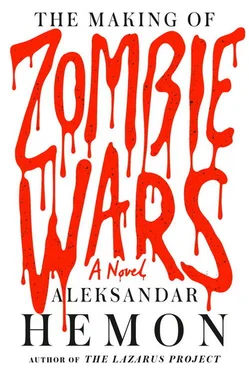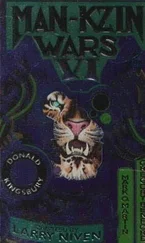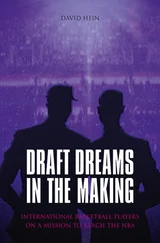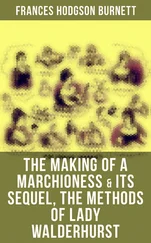“So?” Billy asked, still standing.
“So?”
“So what does your gut tell you?”
“About what?” Joshua asked.
“About me!” Billy’s smile was unchanged, his eyebrows curled up a little in what ought to have been surprise. How does one learn to move different parts of one’s face independently? Joshua’s gut was growling with hunger and regret, telling him he should be having a cheeseburger elsewhere. He considered getting up and leaving, but then he would have to confront Graham and explain everything. You gotta grab an opportunity by the balls, Graham had said. Why would an opportunity have balls? was the unanswerable question. Why not, say, breasts? Or some other kind of opportunistic protuberance? Why not grab an opportunity by the nose? And how would an opportunity react, if it indeed had a body, to having one of its parts grabbed? The human mind does not involve adequate knowledge of the parts composing the human body.
“You gotta go by your gut,” Billy said. “Brains is for amateurs.”
The waiter, too large and slow to be a professional — easily cast as the laziest sibling in the family, the prodigal son who came back from college as a stoned failure — approached them gingerly, his pen at attention. Billy adjusted his smile to garble something at him.
“Excuse me?” the waiter said.
“It’s Japanese,” Billy said. “It means: ‘My Japanese is bad.’”
“I’m Korean.”
“My Japanese is still bad!” Billy laughed, the loyal soldier of the ever-growing army of people who laugh at their own jokes. They laugh because they feel no one else would or should. A symptom of injurious loneliness, the little man noted. One day there might be only solo laughter, the streets ringing with the roars of abysmal solitude. Joshua spread his napkin, tucking a corner into the shallows of his chest, if only to avoid being witness to the embarrassing exchange. The waiter looked toward the bar, as if asking for help. There was no one at the bar; no help was forthcoming.
“Anything to drink?” he asked Joshua.
“What kind of green tea do you have?”
“Green. And greener,” the waiter said. He already disliked Joshua, because of his affiliation with Billy.
“Green, then,” Joshua said. He was going to buy some expensive green tea in Chinatown and deliver it to Bernie. The waiter abandoned them for the comfort of the empty bar, where he reread the order with a confounded expression on his face. Joshua could tell his escape paths were just as foreclosed.
Billy was an expert on sushi, ate it with his fingers, the way it was done in Japan. He’d spent a summer in Tokyo, where he’d picked up the language. Food in Tokyo was incredibly expensive. An avocado cost a hundred dollars, Billy said, unless it was cubical, which cost even more. The Japanese grew vegetables in boxes to save space. He disliked avocado because it was the only vegetable with fat in it, a lot of it. Fat was his primary enemy. Fat was the devil himself.
Dexterously, he deposited in his mouth one piece of sushi after another, talking all along, rice grains fluttering down to his napkin. You could tell Billy knew and liked himself well; he’d sail with himself to the end of the world and back. Joshua listened without even touching his seaweed salad, thinking without thinking: there was a refugee woman back at home (home?) waiting for him to share her pain; there was a father filling up with evil cells; everything else was, well, kelp. He sipped the green tea occasionally, impatiently. Had Billy even read the Zombie Wars pages? Joshua considered for a moment that, first, he’d never sent the pages and, second, that he’d never in fact written them and that everything had taken place solely in his head. Script Idea #168: A desperate writer runs into a producer at a bar and pitches his movie idea. The producer loves it and wants to start shooting immediately. The writer subsequently discovers he is losing his mind. His career, including the producer, turns out to be entirely imaginary. Title: Head Shots.
Green tea had a lot of antioxidants, Billy said, and they were good against cancer. He cleaned off his plank of sushi, pulled the napkin off his chest, releasing a flock of rice, and dabbed his mouth. He was now ready to talk business. Momentary confusion compelled Joshua to take the last piece of sushi from his plate. He wondered all of a sudden what Kimmy would think of Billy and his macho projections, of his need to dominate with grins.
“Let’s pretend we don’t know each other at all,” Billy said. “Let’s pretend we’re at a party. Everybody’s drunk out of their minds. There’s an orgy with a rotating cast in the spare bedroom. You have exactly five seconds for your pitch. Sell me Zombie Wars .”
His mouth loaded with unagi, Joshua slowed down his chewing to think of the way either to avoid this test or, if that proved difficult, to get up and walk away. The waiter would understand. Ana would understand. Even Kimmy would understand. Joshua swallowed.
“ Zombie Wars is a story of an ordinary man trying to survive in difficult circumstances,” he ventured.
“Not bad. Not bad at all. But let me give you some advice. Never, ever use the word ordinary when you pitch. Ever. Another thing: trying . Heroes don’t try. They either do it or they don’t. Mainly they do it. Survive: verboten ! Unless it’s a Holocaust story. And circumstances has too many syllables, easy to fumble.”
“You know what?” Joshua said, standing up, fumbling the napkin. “I don’t think this is a good idea.”
“Sit down,” Billy said.
“I’m sorry. There’s been a misunderstanding. I’m not ready for this.”
“Sit down! Right now.”
Joshua sat down. Billy was glaring at him so intensely it seemed possible to Joshua that he might smack him. Nervously, he took a sip of his green tea.
“I know what you’re thinking: you think I don’t know shit. Fine! I don’t know shit,” Billy said. “But let me tell you something: I’m so sick of people like you, Joshua, who think they know what life is and they have no experience of it. None. Zero. Nada. They think they can bullshit me, like I know nothing. What did you expect when you came here? What do you think I do? What do I do? Do you know? Tell me: what do I do?”
Billy maintained his Botox grin waiting for a response, and it was its unchanging aspect that compelled Joshua to say something.
“You’re an agent. You represent clients.”
“Wrong! That is wrong! Try again.”
“I really can’t do this.”
“I make my people look good so I can sell their goods. I can sell a phone book page as a treatment for The Return of Titanic . I get things done. That’s what I do. I am an agent because I have agency. I know you don’t have an agent, but do you have agency, Joshua?”
As Joshua comprehended the question, Billy signaled to the waiter with a little twirl of his index finger as if demanding a pirouette. Instead, the waiter moved at deliberately slow speed between the vacant tables, pushing the chairs aside.
“No, you don’t,” Billy said. “Which is why you need an agent.”
The waiter arrived, visibly exhausted by his slow-motion slalom. Billy ordered a selection of mochi balls without consulting Joshua, shaking his head as if astonished at the perfection of his choices. This man’s energy was so abundant as to be desperate and therefore pathetic.
“You gotta figure out what to do with all that potential you have, because potential can fuck you up big time,” Billy said as the waiter retreated. “Yes, zombies could be killed all day long and no sane person would ever root for them. Yes, God made them for boys and video games. Yes, there are loads of redemption, and killer units, and heads exploding, and cultural references up your backside. Yes, the main guy is a doctor. Yes, there should be a lady. And yes, I can get someone real nice for the female lead, Gwyneth or someone like that.”
Читать дальше












